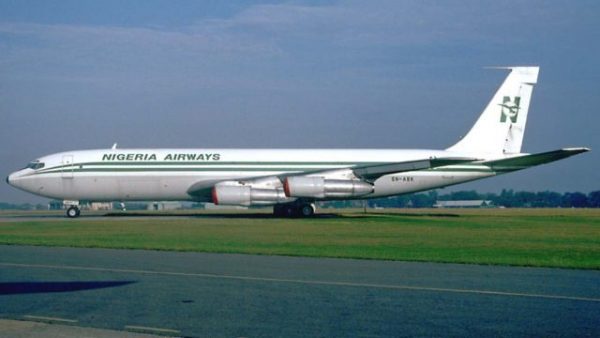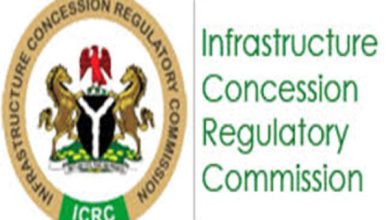African governments urged to simplify maritime transport for AfCFTA’s success

• MOWCA faults Nigeria’s Cabotage Act for promoting foreign vessels
For African Continental Free Trade Area (AfCFTA) to thrive, member states must create an enabling environment for the simplification of the intra-Africa movement of goods and persons.
The Secretary General of Maritime Organisation of West and Central Africa (MOWCA), Dr. Paul Adalikwu, disclosed this at a presentation on ‘Transport and Logistics to Unlock the One Africa Market’ at the AfCFTA Business Forum in Cape Town, South Africa, held from April 16 to19.
Adalikwu also stated that the growth of intra-African trade under AfCFTA depends on the willingness of member states to increase the availability, efficiency, capacity and safety of their maritime transport systems.
According to him, the continent’s maritime industry is grossly under-utilised, adding that for it to achieve AfCFTA’s aspirations, governments of member states must create enabling environments for the movement of goods and persons through tax incentives and lower interest rates to African ship owners to acquire vessels.
For varied reasons such as volume, safety, security and cost-effectiveness, among others, he said, maritime has been adjudged the most effective and efficient way of conveying import and export trade items around the globe, thus accounting for the growth in the gross domestic product (GDP) of nations.
“It is estimated, as of 2022, that Africa has a population, which is just over 1.4 billion people. The continent is endowed with such natural resources as land, maritime domains and its vast resources, huge untapped agricultural and mineral resources enough to sustain its economy,” he said.
Quoting the World Bank estimates, Adalikwu revealed that AfCFTA could boost continental income by as much $450 billion and lift close to 30 million people out of extreme poverty and bring about sustainable development.
“Also, the Economic Commission for Africa (ECA) estimates that, with the implementation of AfCFTA, 132 million tonnes of cargo will be transported by 2030. AfCFTA would require about 126 vessels for bulk cargo and 15 vessels for container cargo,” he stated.
Adalikwu stressed the need to address the myriad of challenges in the maritime sector ranging from funding, high freight rates, poor turnaround time in cargo clearance, inadequate storage capacities, low fleet ownership, tariff and non-tariff barriers.
Other bottlenecks, he listed, are banditry, safety, insecurity, absence of shipbuilding and recycling, human capacity building such as training and employment of cadets, weak legal frameworks in monitoring and control of illegal fishing and development of ports infrastructure to build strong vibrant maritime ecosystems among others.
Adalikwu faulted the Nigerian government Cabotage Act enacted in 2003 to restrict the use of foreign vessels in domestic coastal trade, promote the development of indigenous tonnage as well as establish a Cabotage Vessel Financing Fund (CVFF) designed to enable Nigerians to acquire indigenous tonnage.
He frowned that the CVFF fund is yet to be allocated to garner vessel financing, which he said, is the kind of needed intervention from governments of member states for the private sector to play an active role in ship acquisition to enhance the desired participation.
Adalikwu lamented that a majority of the vessels plying the Nigerian waters are foreign-owned enjoying Cabotage waivers.
According to him, this is certainly not healthy for the aspirations of AfCFTA, as it even denies the states the economic benefits that accrue to vessel ownership.
He further pointed out that the major reason for the establishment of the Regional Maritime Development Bank (RMDB) by MOWCA is to provide the needed financial base, while he called for its urgent launch, as it fits into the AfCFTA objectives.
Adalikwu commended the port infrastructural development strategies of the African Development Bank (AfDB) and tasked the African Export–Import Bank, (AFREXIMBANK) to take strong initiatives in the development of the maritime sector.
The MOWCA SG noted further that the opportunity created by AfCFTA would not benefit Africa if sufficient attention were not paid to designing regulations that will attract indigenous tonnage.
He said while the AfCFTA provisions seem to have given preference to flagging as a solution to carrying goods generated by the trade area, this choice might fail to produce the vibrant shipping sector desired by the continent’s maritime community, hence the need to encourage indigenous African ship ownership.
He further added that the impact of autonomous vessels might in the long term further reduce seagoing staff and engendering changes in the desired skill sets of industry professionals, just as he advised maritime institutions to be ready for this change.
Adalikwu also listed the maritime professional services to be impacted by AfCFTA to include: shipbuilding, seafaring, ship/cargo broking, ship recycling, financial services, maritime consultancy – recognised organisations, surveyors, maritime insurance and maritime legal service.







